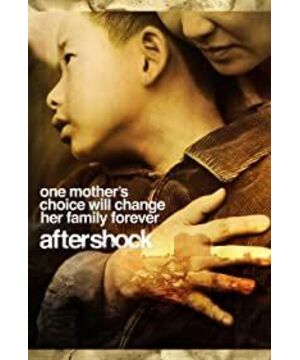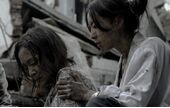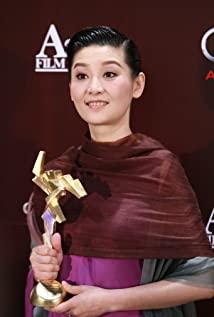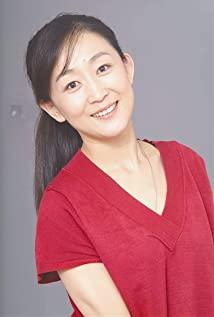Aside from the soft commercials of the film (we can all see that China Life Insurance, Nokia 5800, Feng Dao’s money is not in vain) and the labor propaganda team fan, the film does prompt a lot of problems - or, borrowing this film, people really do A lot of additional difficulty points can be developed, even after the issue of ex post accountability is ruled out.
Simple things like legitimacy. In the film, after the two earthquakes in Tangshan and Wenchuan, there are plots where the guardian decides: save the son or the daughter, save the healthy daughter or avoid the casualties of the ambulance personnel. Does the guardian have the authority to make this decision? Is this consistent with the fact that the hospital seeks authorization and immunity from family members before surgery? When choosing between saving Fang Deng or Fang Da, Yuan Ni finally chose her younger brother. After receiving this statement, the rescue team still rescued Fang Da when they knew that the rescue could directly cause the death of one person (Fang Deng). Intentional homicide (even with immunity from punishment or even prosecution)?
Another example is the change of social system (in a broad sense). Lost children rescued by the military (we don’t say orphans, because the little female soldier also made it clear that they cannot be 100% sure; of course, they are not voluntary abandonment) can be directly issued for internal adoption; compared with the current adoption system in mainland China today and the actual operation of legal adoption, it is really inspiring. People think that a good person should be a soldier, and a good iron will drive socialist screws. Of course there may be some distortion in this description, it is a movie after all, but it at least reminds us of something - no, exactly what we might actually think about it.
Power in the family system. There are two artificial separations of mother and child in the film. In 1976, Fangda's grandmother wanted to take Fangda to Shandong. New Era Fonda forced his wife to leave the child and leave the little to his grandmother. In both incidents, the forced people offered a "compromise" plan: go to Jinan with Fangda; stay in Tangshan for the New Year with the whole family. The final choice of the mothers in the two incidents was also the same: they gave up the compromise plan, and because the power balance was weak and could not implement the plan that was beneficial to them, they finally chose to give up their children (both sons). The difference is that in the second incident, the mother involved fought harder, perhaps reflecting the growth of individual rights awareness relative to family awareness from one aspect. What is intriguing is that in the first incident, the grandmother blamed Yuan Ni for implicated the whole family ("It's because of you and my son that I came to Tangshan"), and when she continued to use verbal violence against Yuan Ni ("I want to do everything for him (son Fang Daqiang)) Die"), Yuan Ni, as the most direct and tragic victim in our eyes today, chose to apologize in tears, which means that even if she does not agree with the old lady's concept, she is not prepared or afraid to To resist, he could only repeat to the authorities that he would take good care of his son, as if he were a nanny who was applying for a job. But 30 years later, when she faced her daughter-in-law repeatedly kissing her grandson and saying goodbye to her tears, she didn't seem to think about her past 30 years ago, so we witnessed "a ten-year daughter-in-law has become a mother-in-law" again. Yuanni and Fangda use their own suffering to kidnap others into suffering, and pass on inhumanity (“Isn’t it good to say before marriage?” This very predictable agreement should not be fair and acceptable to everyone The plan, such as one year in Tangshan for Chinese New Year, and one year in Xiaohe’s parents’ house, otherwise Xiaohe would not emphasize that “my parents have not seen the child,” and neither Fangda nor Xiaohe would or should care which year came first. Tangshan). And the climax is the mother's giving up. "Mom, let's take Fonda away, this is killing Yuan Ni." Yuan Ni, who stood behind the back of the car for a long time, may have thought of suicide at that time - maybe when she apologized in tears and finally agreed to let go of her son She had already thought of suicide. Even if she survived, she would be in great pain and loneliness. However, even in the face of such a situation, she did not accept the plan of going to Jinan together and possibly relying on others. Xiaohe's reasons for rejecting this plan were, "How can I live in such a crowded place?" To do a homogenous treatment, the reasons for rejection may be related to "dignity"; or whatever it is, it is at a critical juncture, such as the importance of the younger brother surpasses the elder sister's kinship. For some people, such as the famous Medea, Fang Xiaoru
When it comes to family, this is a complex issue. We can also think of similar "intimacy-type" emotions such as love and friendship. What is their essence? I have a dim feeling that they can be understood in a constructivist (not at all "constructive", but closer to "deconstructive") notion, since we see in the film that family relationships are neither dependent on long-term shared life experiences (The effective living experience of Fang Deng and blood relatives is three or four years) and does not depend on blood (between Fang Deng and his adoptive parents), or conversely, one of the two or even other factors can be used as a construction opportunity. , we also saw the failure of the family relationship mentioned in the previous paragraph to other constructive concepts (such as dignity or honor, doxe in Plato's sense), and we also saw in the film that everyone is making their own life decisions, The various symbolic meanings it insists on (refuse to remarry for the sake of ritual compensation for her husband’s life-saving rescue, buy textbooks for the deceased daughter every year, refuse to move, burn paper to tell the deceased’s home address, refuse to have a lethal abortion, go out. What an important role it has played in the development and advancement of life. By setting up for himself the problems he needs to solve and the goals he needs to achieve (isn't this exactly divine freedom, even though man's establishment must be more specific and scattered), man acquires or constructs the meaning of existence, making It not only satisfies the transcendental belief demands, but also exists in the way of being in the world. But at present the author is unable to fully discuss these ideas, leaving an unfinished open ending—or, rather, an uninitiated beginning—to the future or a sage.
View more about Aftershock reviews










